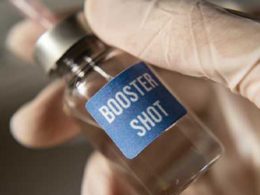By Lance Mpofu
Claim: Depo-provera is a harmful contraceptive that makes women susceptible to acquiring HIV
Source: social media
According to some social media stories, depo-provera has many side effects which include amongst others, increasing the risk of HIV acquisition and transmission for women who use it.
The debate was triggered by the current national statistics on teenage pregnancies which are on the rise and locals were sharing their views on whether or not school children should be given contraceptives such as depo-provera and jadelle as a way of curbing teenage pregnancies.
Some women expressed concern about depo-provera arguing that it has so many side effects and that it was recently banned in America, which is not true.
According to the Zimbabwe National Family Planning Council (ZNFPC), depo-provera is a safe contraceptive which is very effective when used correctly.
Depo, as it is widely known in Zimbabwe, was approved by the US Food and Drug Administration (FDA) in 1992 with an efficacy rate of 99 percent.
In 2019, the Ministry of Health and Child Care revealed that out of an estimated 2,2 million women who use modern contraceptives in Zimbabwe, 15 percent use depo-provera.
The uncertainty surrounding the use of depo and increased HIV acquisition was dismissed by scientific research carried out in 2015 by a research consortium led by FHI 360, the University of Washington, Wits Reproductive Health and HIV Institute and the World Health Organisation (WHO) after carrying out a trial code named: Evidence for Contraceptive Options and HIV Outcomes (ECHO).
The study with over 7,800 women taking part, was designed to compare HIV acquisition between three different methods of contraceptives: depo-provera, jadell and copper intrauterine device (copper IUD).
The study findings showed no statistical differences in HIV acquisition between women using either of the three contraceptives.
What is depo-provera
According to Population Services Zimbabwe, depo is an injectable hormonal contraceptive method which contains progestin.
Progestin is a hormone that stops the egg from being released each month, thins the lining of the womb and thickens its barrier to prevent the sperm from going through.
It should be administered after every 2 to 3 months for its full efficacy.
Depo does not interfere with sex, affect the quantity and quality of breast milk and can be used by breastfeeding women six weeks after delivery.
It is effective for most women as long as she does not default.
Known side effects of depo-provera
- Other people using the shot might have longer, heavier periods, potting, or bleeding between periods.








